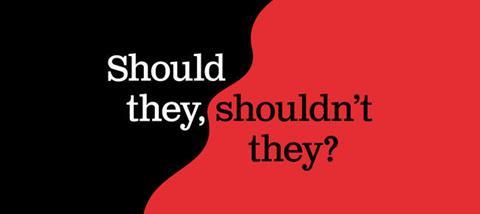
Yes, we should
I was woken up recently by my 4-year-old son who’d come into our room after having a nightmare.
Earlier in the day he’d sat through a school assembly where the head teacher had explained the seriousness of coronavirus. In his dream, his mum had died as a result of the virus. There are consequences to introducing negative stories at such a young age. While we can do our best to explain things, a 4-year-old is never going to really understand why thousands could be killed by a virus – especially a child who’s been told that God heals.
That said, as someone whose head is constantly consumed by stories like this, I’m not convinced the answer is simply to shield our youngsters away from this. I want my children to be aware of the world – the good, the bad and the ugly. This doesn’t mean I’ll talk about every bomb or murder case, but I want my children to be aware of the injustices in the world and the fact that not all children have the life they have. The news plays a big part in this.
I’m no parenting expert, but there’s a reason we introduce different things to our children at different times (I’m still debating whether we put Monsters, Inc. on too early!) and this is the same when it comes to what’s going on in the world. As a family, we wouldn’t necessarily watch the news together at the moment but we regularly talk about the difficulties many people are facing. Theologian Karl Barth said that ministers should pray with a Bible in one hand and a newspaper in the other. I want my children to know that prayer changes things and their prayers can make a difference
MARCUS JONES
is group head of news at Premier and a father of two.
No, we shouldn’t
A news notification about the dangers of coronavirus popped up on my phone last week, minutes before my 11-year-old son ran into the kitchen in a panic.
He has a mobile phone with access to the internet and I’d downloaded news apps because he’s interested in world affairs. He’d received the same notification I had, with a headline describing how many people were dying and of a case near our home, and was now too scared to go out. He asked if we were going to self-isolate, and told me he was scared his younger brothers were going to fall ill.
Immediately, I deleted the news app from his phone and from any other devices the children use as I didn’t want my younger sons (9 and 4), to be accessing this information. I’ve stopped watching the news when they’re in the house and we’ve halted our newspaper subscription.
While I think it’s important young people are informed, I don’t feel that at the moment it’s right for our children to be watching or reading reports. Information can be biased or twisted depending on the outlet, reports can be confusing or use language they don’t understand, and even for adults it can be tricky to know who to trust.
I would rather keep myself as informed as possible so that I can educate my own children on the issue in a safe, secure environment with language I know is appropriate for them. Of course, refer to the guidelines and information out there, but let’s monitor how our children are responding and initiate a relevant response as a family.
CARLY NELSON
is a mum to three boys.
What do you think? Email ycw@premier.org.uk
A MEDIC AND YOUTH WORKER’S TIPS FOR STAYING SAFE:
•Wash your hands thoroughly– after eating, coughing, sneezing or travelling on public transport. Singing ‘Happy Birthday’ twice is the perfect amount of time.
•Sneeze or cough into a tissue– this can and should be disposed of straight away.
Don’t be afraid! Coronavirus is not something to be scared of and we should relay this to children.






































